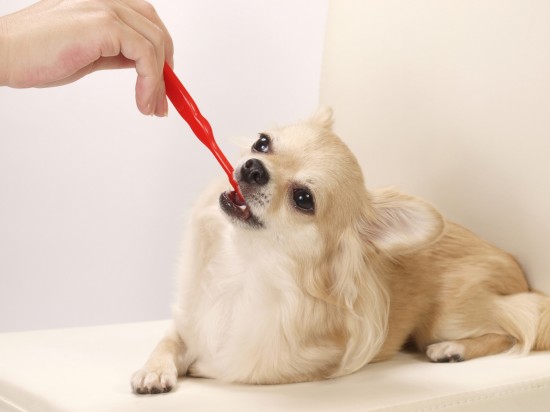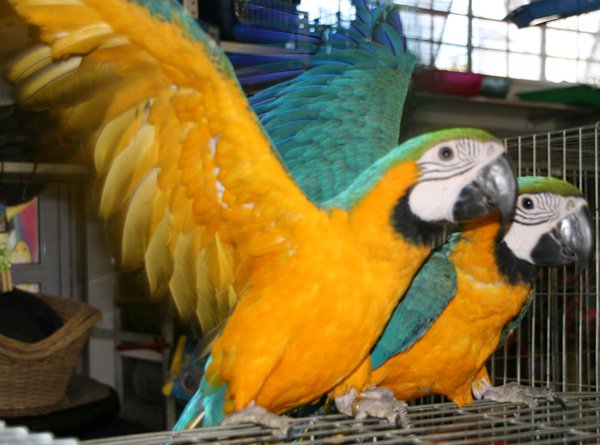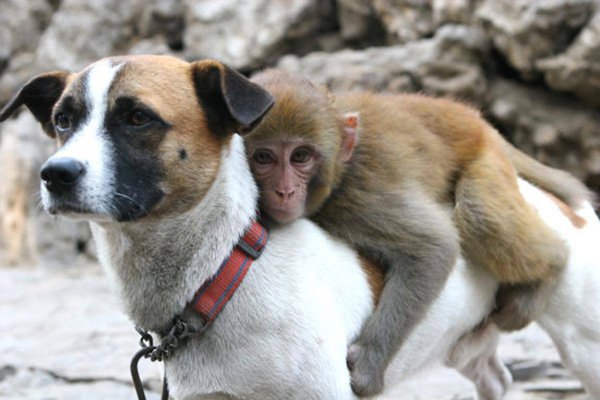
In today's world, we are bombarded by toxicity. Toxins from foods, water, medications, chemicals used to "protect" us from weeds, bugs and parasites. And no one is hit with more toxins than our animals. While the FDA prevents food manufacturers from adding the worst of the culprits to our food supply there is very little oversight about the chemicals and preservatives in our animal's food supply.
We attempt to "poison our way to health" by over-vaccinating, worming, and sterilizing our animals. In order to have a long shelf-life, commercial pet foods add well-known carcinogens such as BHA, BHT and ethoxyquin. These approaches leave a chemical residue that can take decades for the body to eliminate. They build up in the organs of elimination, making ever more difficult for the liver, kidneys, lungs and lymph system to effectively do their jobs. When these cleansing organs get overwhelmed, toxins back up into the body - just like what happens when you flush the toilet but the septic system is backed-up. The body cannot properly assimilate the nutrients needed for optimal health when the intestinal tract becomes coated with indigestible tar from rendered and overcooked fats.
This backup results in many of the diseases that affect our animals: allergies; cancer; metabolic dysfunction; etc. The first place to start, before the toilet backs up, is to clean out the septic system - detoxifying the organs of elimination and the intestinal tract.
The title of this article includes the word "gentle". Why gentle detoxification? Because to clean out too quickly can cause harsh and sometimes critical side effects. Headaches, body aches, diarrhea and itching are common. Occasionally, rapid cleansing can offer life-threatening difficulties. In fact, the sicker the animal is when we start, the slower the detoxification should to proceed.
So where do we start? First: by slowing, if not stopping, the flow of toxins into the body. Educate yourself about what goes into pet foods and, if necessary, move up to a raw diet or foods made with human-grade ingredients. Look for labels that put in writing that there are no chemical preservatives. Give distilled or well-filtered water instead of municipal water. If your animal is unhealthy, do not vaccinate (it even says on the vaccine label never to vaccinate a sick animal). Discontinue toxic flea and tick remedies or heartworm medications. Check your animal's environment for obvious problems such as rat or ant bait, bleach in water buckets or chemical fly sprays. Reducing the level of toxins going into the body can go a long way to helping it to heal itself.
Next: begin to support and flush out the liver and kidneys. These are the main filters of liquid and solid waste materials from the body. When these organs become overloaded, they shunt the excess work off to the lymph system and its largest organ - the skin.
The kidneys get rid of the by-products of protein breakdown . These include ammonia and urea, which are toxic. They also filter some bacterial toxins, hydrogen, electrolytes, heat, and carbon dioxide. The kidneys handle a multitude of other important functions: pH regulation; fluid retention; regulating blood pressure. Arthritis and joint pain are directly related to the kidney's inability to handle their jobs. We see additional problems related to kidney toxicity such as urinary crystals, bladder and urinary tract infections and incontinence. So keeping kidneys clean can make a world of difference to our animals as they age.
My favorite place to start for clearing the kidneys is with Amazon Herb Company's Rainforest Treasure Tea. This tea helps stimulate urine production and contains beneficial herbs such as una de gato, jatoba and chanca piedra. These herbs have been shown to be extremely beneficial to kidney function. Animals usually love the taste and the tea can be used in the water bowl or given with the food. Other herbs shown to be beneficial for supporting and cleansing the kidneys include: uva ursi; horsetail; parsley and pata de vaca. These are usually brewed into teas or given as a liquid tincture.
Another excellent way to support the kidneys is to add raw apple cider vinegar to the drinking water (in non-metallic containers). Usually at about 1 tablespoon per gallon of water. If your animal does not care for the taste, add small amounts directly to their food. Vinegar is an aromatic acid that helps lower the body's need for hydrochloric acid in the stomach. The vinegar's acetic acid is breathed off through the lungs and leaves behind a strong alkaline residue that helps balance the body's pH. The vinegar helps support healthy digestive flora and healthy mucus production in the gut.
The liver is a complex, vital organ. It controls everything from digestion and hormone balance to immune function. For the purposes of our discussion, we are looking at it as a big colander the body uses to filter solid waste materials. Think what would happen if you used your colander in the kitchen every day but never washed it: the drain holes would fill with bits of the materials that have been strained. To clean your colander takes water and soap, to clean the liver takes water, enzymes and fiber.
Once again, when looking to cleanse and support the liver, I reach for Amazon Herb's products: Fiberzon and Envirozon. Fiberzon is made of excellent fiber sources with over 50% herbs to cleanse, heal and support the liver and digestive tract. Fiberzon acts as a digestive broom to pick up and gently remove tar and toxins that line the intestines. I especially like using Fiberzon with dogs and cats to help control cleansing reactions such as diarrhea.
Envirozon is a blend of Rainforest herbs such as boldo, jurubeba and artichoke. These herbs are proven to support liver function. They are an abundant source of phytonutrients, and they provide valuable enzyme activity .
Milk Thistle is another excellent liver protective herb shown to be safe even in pregnancy. Adding fiber-rich freshly ground flaxseeds or chia seed is another way to help with colon and liver cleansing.
These herbs all work well with horses, cattle, alpaca and other herbivores. Their diets are often high in fiber so they rarely need the extra fiber components mentioned above.
Pay attention to health signals when helping your animals to cleanse. It is important to not hurry this process. Expect loose stools or a few days of simple diarrhea. These are good signs that the liver is cleaning out. Your animal's health may seem to get worse as their body begins to rid itself of toxins, especially if they have been dealing with itching or allergies. This decline should only last a few days before it improves. Getting healthy can be exhausting work. If you animal seems overly tired, or is extremely uncomfortable with itching or loose stools, cut back on the quantity of herbs or other products you are using. Give probiotics for digestive support and use topical bentonite clay on itchy areas to soothe the skin.
Don't expect to immediately eliminate all the toxins. Some chemicals are strongly embedded into the body and can take awhile to remove. Schedule a minimum of 120 days to replace the blood and judge the success of your detoxification program. One of my early health mentors stated that for animals eating a typical commercial pet food diet and receiving typical health care, they need to cleanse one month for every year they have been alive. The less we feed typical agri-waste based foods and avoid the approach of poisoning our way to health, the less often we need to detoxify the body.
I will discuss the issue of heavy metal toxicity in an upcoming article.
Namaste'
 4 Great Tricks To Teach Your Dog
4 Great Tricks To
4 Great Tricks To Teach Your Dog
4 Great Tricks To
 How To Tell If Your Dog Has Dental Problems
How To Tell If Yo
How To Tell If Your Dog Has Dental Problems
How To Tell If Yo
 Urinary Incontinence And Oestrogen Levels In Bitches
Urinary Incontine
Urinary Incontinence And Oestrogen Levels In Bitches
Urinary Incontine
 What To Do With The Pet Recalled Food
What To Do With The Pet Recalled Food
There ar
What To Do With The Pet Recalled Food
What To Do With The Pet Recalled Food
There ar
 High Quality Timber Chicken Houses For Your Poultry Flock
High Quality Timber Chicken Houses For Your Poultry Flock
High Quality Timber Chicken Houses For Your Poultry Flock
High Quality Timber Chicken Houses For Your Poultry Flock
Copyright © 2005-2016 Pet Information All Rights Reserved
Contact us: www162date@outlook.com